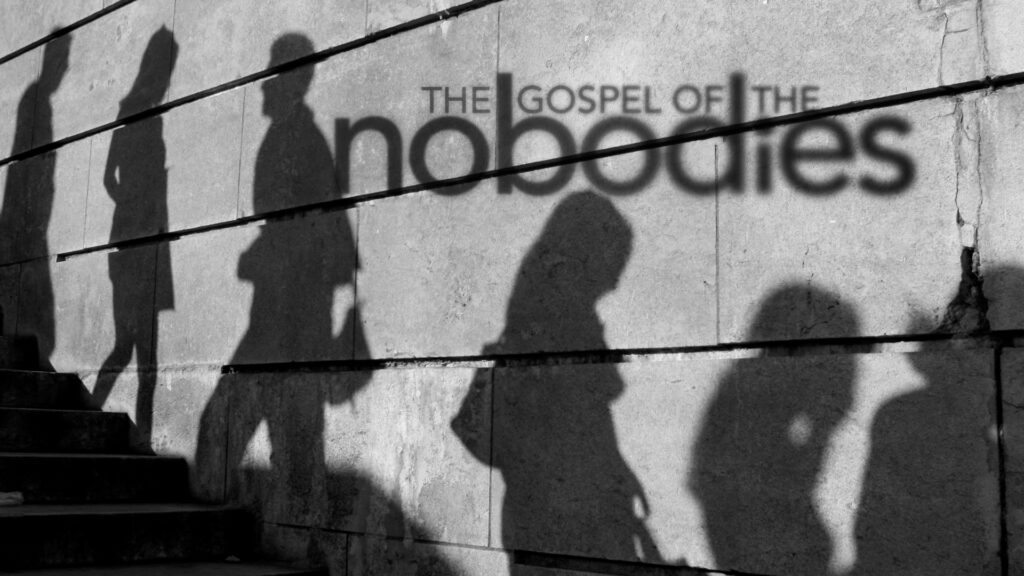
Most of us have at some point felt like a nobody – insignificant, invisible, worthless. While all four Gospels can give hope to those who feel that way, the Gospel of Luke has a particular focus on Jesus’ ministry with those who were considered nobodies.
This Lent, join us for a powerful worship series that explores that ministry. Each week, we’ll turn our attention to specific stories that illustrate Jesus’ concern for those who were marginalized by society, and as we do, we’ll hear his word for our lives today. Join us for The Gospel of the Nobodies, beginning March 6, 2022, in-person and online.
We’ve created a discussion guide for group or individual use that you can download here: Gospel of the Nobodies Discussion Guide
Content and questions by Brian Gerard and Rachel Freeny. Series title and art used with permission from United Methodist Church of the Resurrection.
